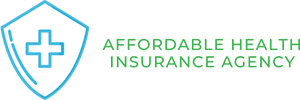The world of health insurance can often appear complex and overwhelming. From policy options and coverage plans to deductibles and premium costs, understanding the intricacies of the healthcare system is a journey that many embark upon with trepidation. That’s where an affordable health insurance agency in Atlanta, GA, becomes a vital resource in providing clarity and guidance.
This comprehensive guide will empower you with the knowledge and insights to navigate health insurance confidently. We’ll explore the significance of making informed choices about your health coverage, ensuring you and your loved ones have access to quality care when needed. From the bustling streets of Atlanta to the diverse neighborhoods that make this city unique, we’ll provide you with the tools to make educated decisions about your health insurance.
As we embark on this journey with the support of an affordable health insurance agency in Atlanta, GA, we’ll uncover the importance of securing your health and well-being. Let’s start by unraveling the complexities of health insurance so you can make choices that empower your health and future. Your health is your most valuable asset, and understanding your health insurance is the first step to safeguarding it.
What Is Health Insurance?
Insurance covers the medical costs associated with illness or injury. Insurance is meant to protect you from expensive medical bills that you may not be able to cover otherwise.
Adam Block, Ph.. D., a public health assistant professor and health economist in the Division of Health Policy and Management of New York Medical College, says: “Companies sell health insurance usually for a monthly fee.” D., assistant professor of public and health policies in the Division of Health Policy and Management of New York Medical College. The company will cover all medical costs that are deemed to be “medically essential.”
Health insurance can make preventative care more affordable, such as screenings and regular doctor’s visits, reducing the likelihood of injury and illness. Learn what your health insurance will cover.
What Is the Cost of Health Insurance?
For a person under 21, the average cost for individual health insurance on the ACA market is $365. A person over 27 years old will pay $386. A 30-year-old will pay $412. For a 30-year-old, it is $412. What about a 60 year old? It costs $994.
Molly Moore is the vice president for marketplace strategies at ZERO.health. The company helps employers by using technology, data, and plan design. The price is determined by your choice of coverage, your location, and your age.
Prices for those who buy their group health insurance differ from those who get their insurance through their employer. Moore says your employer will pay for some or all of your premiums if they provide health insurance.
Find Affordable Health Insurance Agency Atlanta GA
There are three basic ways to locate health insurance.
- Employer: A company with more than 50 full-time workers must provide health insurance. Employers who do not provide health insurance for their employees risk paying a penalty. Ask about health insurance benefits if you’re employed or looking for a job. Your employer will likely work with one health insurance provider who offers a variety of plans. It would help if you discussed these options with management or human resources to ensure you understand the differences.
- Marketplace/Exchange: If your employer doesn’t offer health insurance or is unemployed, you can shop for a health insurance quote through the Affordable Care Act (ACA) Exchanges at HealthCare.gov. The ACA is a law reform that aims at providing health insurance to uninsured individuals.
- Broker: A broker is a great option if you’re self-employed or unemployed and work in a place that does not offer health insurance. Brokers are licensed professionals who can help you enroll in a plan tailored to your needs at no extra cost. Brokers can help you apply for financial aid for your health insurance. Brokers can also be a good option for people who need assistance navigating state exchanges.
Using health insurance exchanges, users can compare plans and find the one that best fits their needs. Brokers get a commission if you purchase health insurance through a specific company.
What to Ask When Requesting a Quote for Health Insurance
Moore suggests that you consider things such as whether or not you plan to start a family soon (in which case, you should ask about prenatal coverage, family plans, and other options) and how much health care you will need over the coming year. Moore recommends considering whether you plan to have a child soon (in this case, ask about family plans and prenatal coverage) and if you will need hospitalization or surgery.
You should also consider any illnesses or conditions affecting your insurance rate. Consider how many times you plan to visit your doctor in the coming months and what type of medications you need.
When you request a quote, you may be asked the following questions:
What Are the Different Types of Plans Available?
The type of plan you choose will determine the flexibility of your health insurance. Some plans allow you to choose any doctor, while others restrict your options to providers in the network. Plans also vary in price. There are four types of healthcare plans: HMOs (Health Maintenance Organizations), PPOs (Protected Provider Organizations), POSs, and EPOs.
| Plan Type | The basics | Does it offer out-of-network coverage? | Cost |
| HMO: Health Maintenance Organization | An HMO, which is typically regarded as the most restricted kind of plan, requires you to select an in-network primary care doctor and obtain referrals in order to see specialists. | No, unless it’s an emergency. | HMOs usually offer the least expensive premiums. |
| PPO: Preferred provider organization | A PPO is a less restrictive plan that doesn’t require a referral to see a specialist and lets you choose doctors who practice outside of your network for a higher fee. | Yes, for a higher cost. | PPO premiums are generally more expensive than other plans. |
| POS: Point of Service | POS plans, a hybrid of HMO and PPO plans, provide you the choice of choosing an in-network primary care physician while simultaneously giving you access to more expensive out-of-network options. To see specialists, you need a recommendation. | Yes, for a higher cost. | POS premiums are generally more expensive than HMO premiums but less expensive than PPO premiums. |
| EPO: Exclusive Provider Organization | You can only see in-network doctors under an EPO plan, which is a hybrid of an HMO and a PPO. However, you can see specialists directly without a referral. | No unless it’s an emergency. | EPOs premiums are generally more expensive than HMO premiums but less expensive than PPO premiums. |
What Metal Tier is it?
The ACA Exchange usually has four tiers, or “metals,” of health plans. The tiers are Bronze, Silver, Gold, and Platinum. The cost-sharing between you and the plan is shown.
Moore says that when comparing different levels of care, it is more important to compare your budget rather than the quality. She adds, “Remember it’s about your comfort level with risk and your family budget.” You may want to pay more each month to be assured that you’ll have less to pay at the time of your treatment if something happens. You can save money in your Health Savings Account for future expenses.
Check out these metal tiers.
- Bronze: Monthly premiums are cheaper, but members must pay more out-of-pocket costs. Bronze plans pay 60% of your health care costs. You are responsible for the remaining 40%. If you have a medical crisis, your costs will be higher.
- Silver: Silver plans with silver metal have moderate monthly premiums and healthcare costs. Silver plans can save money on co-payments-payments, deductibles, and co-insurance for those who qualify. Moore. Moore.
- Gold: This plan pays 80% of all healthcare costs. The premiums are higher, but the out-of-pocket costs are lower. Moore recommends gold plans if you require medical services specialists or your health is chronic.
- Platinum: Platinum is the most expensive plan with the lowest out-of-pocket costs. This plan covers approximately 90% of healthcare costs. This tier could be your best option if you use healthcare services frequently and can afford to pay more monthly. Many health insurance companies don’t offer Platinum plans in the ACA Marketplace.
What Are the Available Supplemental Plans?
Additional insurance can be purchased to cover expenses and services not covered by the primary insurance plan.
There are several types of supplemental plans. You will need a supplemental insurance plan if your budget and care level needs to be increased. The company that sells the insurance plan will determine which coverage and supplemental plans are available.
Supplemental insurance plans can include:
- Dental: Most commercial health insurance plans don’t cover dental. You can purchase dental insurance through private insurers, or some employers provide it. Most dental plans cover at least part of your procedures and visits.
- Vision. Most commercial health plans do not include vision coverage. Vision coverage is also provided by private insurers or employers, just like dental insurance. Coverage varies but may include procedures, visits, and prescriptions for glasses and contact lenses.
- Children services. These plans usually cover dental and vision care for children.
- Critical illness. This plan covers expenses related to serious illnesses, such as cancer. These plans provide a lump-sum cash benefit that can be used for deductibles and out-of-network specialists, as well as experimental treatments, child care, and childcare.
- Accident insurance. Available in AD&D (accidental death and disability) and supplemental accident coverage. These are usually purchased together. Benefits vary depending on the state and insurer. AD&D provides a lump-sum cash benefit for a beneficiary who died or was critically injured in an automobile accident. Supplemental accident insurance covers medical expenses that result from an accident.
- Hospital indemnity insurance: This policy provides monetary compensation to people admitted to the hospital for a long time due to serious illness or injury.
What is an Hdhp (High Definition Home Page)?
High-deductible health plans have a lower premium but more money you’ll need to pay out-of-pocket.
If you have an HDHP, you can use pre-tax dollars to pay for certain medical expenses. HDHPs are defined by the Internal Revenue Service as having a minimum deductible for individuals of $1,400 or families of $2800. Individuals can spend up to $7,050 annually on out-of-pocket expenses, such as co-payments and deductibles. Families are not included.
The IRS will define an HDHP in 2023 as a plan with a minimum deductible per person of $1,500 and a family deductible of $3,000. The maximum out-of-pocket expense for an individual will be $7500 and $15,000 for a family.
What is a Health Savings account?
HSAs allow you to use tax-free funds for certain healthcare expenses. HSAs let you use tax-free money for certain healthcare costs. You can deposit and withdraw the money tax-free but still receive the compounded tax fee.
Only HDHP members can access this account. This account can be used to pay for anything from contact lenses to humidifiers and prescription copays.
What is a Deductible?
You must pay a certain amount annually before your health insurance plan begins to pay.
Once you reach your deductible, the co-insurance portion of your health plan will be reached. Both you and your health insurance plan share a percentage of the cost. The co-insurance amount is up to your health plan’s maximum out-of-pocket amount.
What Are the Out-of-Pocket Costs?
Out-of-pocket costs are those associated with the patient’s health care. The co-insurance and deductible of your plan (or, in some cases, co-payments) will determine the out-of-pocket costs. Out-of-pocket expenses do not include health insurance premiums.
What Medications Are Covered by Health Insurance?
Some prescription drugs are covered under health insurance. The formulary medication is the one with the lowest cost. A formulary lists brand and generic drugs covered by insurance plans.
Block explains that there are generally four payment levels for medications:
- Tier 1: Generics at low cost on the formulary
- Tier 2: Brand name drugs and more expensive generics on the formulary
- Tier 3: Brand-name or generic drugs not included in the formulary
- Tier 4: Specialty drugs
The formulary can be found on the insurer’s website, in the Summary Benefits and Coverage notice, or in the materials your plan sent. You can obtain this information by contacting your insurer directly.
Does the Policy Cover Travel Abroad?
The majority of primary health insurance plans do not cover this. Find out from your insurance provider if they offer coverage abroad.
Does the Government Offer a Maternity Insurance Policy?
Standard health plans will always cover maternity care, an essential health benefit. It does not matter if you’re pregnant when the plan begins.
Does the Network Cover Coverage Outside of Its Network?
Consider coverage outside of your network. Insurance companies have agreements with medical providers and doctors. Your plan will consider the network of providers.
PPOs allow you, for instance, to receive healthcare outside of your network but at a higher cost. HMOs and other EPOs do not.
Verify the network accepts your policy. This is especially true if your plan only covers care received within the network.
Are Referrals Required?
You may need a referral from your insurance company before seeing a physician. HMOs usually require referrals. Other health insurance plans and PPOs do not require referrals.
You can easily book specialist appointments when your plan doesn’t require a referral. You don’t need to worry about costs. The flexibility is at a cost.
What to Look for in a Health Insurance Plan
Compare the premiums for the ACA Marketplace plans. Compare out-of-pocket costs, such as deductibles or cost sharing. It would help if you also considered their provider networks and benefit designs.
Costs include health insurance premiums. Health insurance premiums are paid. Bronze and silver plan premiums tend to be the lowest on the market. Gold and platinum plans are more expensive.
It is not enough to select a plan solely based on premiums. Out-of-pocket costs also have a significant impact on the cost of healthcare. When you need health care, you pay for out-of-pocket expenses such as co-insurance and deductibles. Gold and Platinum plans have the lowest out-of-pocket costs. These plans will save you money on health services.
The metal tier is a tool that helps you to calculate your health care costs. It is important to consider the plan’s design. Benefit design is affected by whether or not a plan permits out-of-network care, if members must choose a primary healthcare provider, and if specialists must be referred. A plan’s benefit design affects how flexible you are and what services will cost outside your network.
Compare the network of providers included in each plan. Verify the plan covers your providers. If only a few providers or facilities accept your plan, you may be required to pay more if you need out-of-network care. Some plans offer out-of-network benefits but at a higher price than care in the network.
Conclusion
In today’s complex healthcare system, it is essential to have a thorough understanding of health insurance. Health insurance is more than a way to pay medical bills. It’s a cushion against unexpected medical costs. Health insurance ensures that individuals receive quality medical care without compromising their financial stability. To be well-informed, it is important to understand the differences between plan types and rates, deductibles, and other out-of-pocket costs. Understanding these elements will help you make better decisions tailored to your needs.
Do not let a lack of knowledge or insurance compromise your health or the health of your family members. Ask the right questions and protect your health with the best insurance plan.
As you put your health first, don’t forget that your environment can also affect your well-being. Affordable Health Insurance Agency can give your office or home a fresh look. Just as you deserve quality medical services, your spaces deserve a quality touch!








